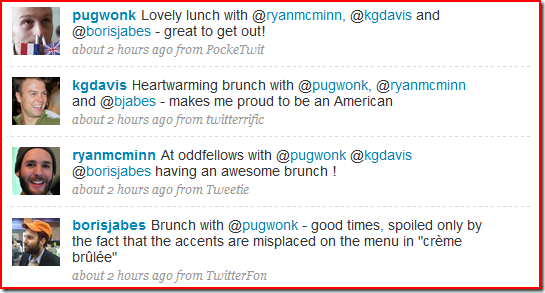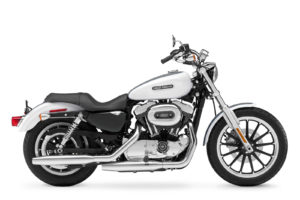I went to the Paramount Theatre, here in Seattle, the other day to watch Flight of the Conchords perform. Don’t get me wrong, I think Flight of the Conchords are great. In fact, that’s the main reason why I went to see them.
They ambled onto the stage holding their guitars, and sat down at their chairs. The audience all stood up, whooping and cheering and stamping their feet. A standing ovation? Before they opened their fucking mouths? What if it turns out they’ve spent the entire day doing crystal meth in Cal Anderson park and are just about to proudly unveil to the audience the body of the disabled girl they burned because they thought she was a demon? It’s too late now! You’ve given them a standing ovation already! The worst you can do now is clap a bit sarcastically at the end! You are sanctioning ritualistic murder, you crazy bastards!
Of course, they played a pretty fine gig. They didn’t seem to have killed anyone, and if they had spent the day doing crystal meth then they were at least experienced enough to cover it up. They got a standing ovation at the end as well, with some more whooping and cheering. How do they know if they played a good gig? Well, they certainly can’t tell from the audience. Maybe they could ask the promoter at the end, but the promoter would probably describe the gig as “awesome”. This word, “awesome”, is defined on some website I found thusly:
awesome: (adj) amazing, awe-inspiring, awful, awing (inspiring awe or admiration or wonder) “the awesome complexity of the universe”; “Westminster Hall’s awesome majesty, so vast, so high, so silent”
To the average American, the word is defined more like this:
awesome: (adj) not shit. “That was an awesome bowl of cereal”; “My brother got this awesome job stacking shelves in Target”
It’s impossible for the poor Conchords to find out whether it was a good gig or not, because Americans have adopted this unpleasant habit of using more and more superlative words and actions in everyday life, and therefore steadily deflating their significance. Faced with this problem, the promoter would probably have to say something like “it was so awesome I had a boner for the whole of the second half” and, in doing this, therefore contribute to the deflation of the word “boner”. The next time he wanted to explain to someone that he actually had a boner, he’d have to call it a “raging boner” just to make the point. And so, as you see, the cycle continues. After my notable lack of success in coining the phrase “antisocial networking”, I am going to attempt to coin the term “exaggeflation”.
exaggeflation: (n) the diminishing of emphasis by over-use
This problem pervades the whole of American society (and, much like most of the things I grumble about in these posts and try to fob off as American phenomena, the rest of the world). Think of the other words you hear kids using all the time these days. Gorgeous. Excellent. Amazing. Fantastic. Superb. What on earth are they going to say when something really good happens? Even “100%” now means “35%”. The actions are perhaps even worse than the words. Ten years ago, I remember aircraft passengers occasionally clapping when the pilot managed an unusually smooth landing in the middle of gail-force winds and a lightning storm. Now, everyone on the plane practically starts performing Mexican waves when the 7:32 from Spokane plops down in bright sunshine. Soon they’ll be clapping when the hostess successfully opens the door, or when their luggage arrives on the carousel.
I have done some complex calculations in order to find out how much exaggeflation modern society can take. The results, my friend, are disturbing. In ten years, audiences at Flight of the Conchords concerts will be forced to expose themselves as the band come on stage and then, if the gig was particularly good, ritually disembowel their first-born child using a rusty penknife. By August the following year, it will be a Samurai sword, and their first born had better be male.




